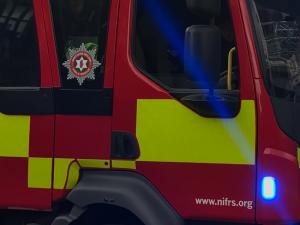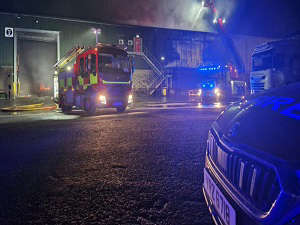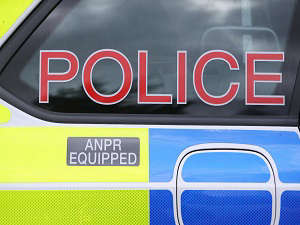
By Michael McHugh, PA
Aged IT systems and labour-intensive manual processes contribute to “significant weaknesses” at Northern Ireland’s fire service, an official report said.
An independent review found problems with the payroll, stock management and equipment testing records.
No competitive procurement exercise was carried out in several instances when obtaining fleet and equipment.
An internal auditor recognised management’s continued focus and progress in addressing recommendations, and a new IT system is being tested.
The report said: “Various aged IT systems supported by labour-intensive manual processes impacts on the accuracy of stock information, management of stock and availability of real time information.”
According to the internal audit, overall there is a satisfactory system of governance, risk management and control.
While there may be some residual risk identified, this should not significantly impact on the achievement of system objectives, the watchdog said.
It added: “There are significant weaknesses within the governance, risk management and control framework which, if not addressed, could lead to the system objectives not being achieved.”
The interim chief fire officer and rescue officer commissioned the internal audit to undertake an independent review into issues around the investigation processes and timescales.
This review identified a number of weaknesses including timeliness of investigation, gathering of evidence and “ineffective” prompt management action.
An overview of findings identified issues surrounding:
– Manual payroll systems, a “labour-intensive” manual process, which is inefficient and there is a higher risk of errors.
– Incidences of no competitive procurement; with individual aggregate supplier spend of over £5,000.
It said contract spend should be in line with procurement guidance.
The details are contained in an annual report published by the service.
It said the fire service had made progress in implementing a new command and control mobilising system.
It has also taken forward steps on training facilities in Cookstown, Co Tyrone.
Carmel McKinney, chair of the Northern Ireland Fire and Rescue Service Board, said: “Throughout the year the board continued to monitor progress on the implementation of 13 business improvement projects.
“The aim of each project is to improve future service delivery whilst also addressing a large number of historical audit recommendations.
“As such I am pleased to report that significant progress has been made with 80% of the outstanding internal audit recommendations fully implemented, 18% partially implemented and 2% deemed not yet implemented or no longer applicable.
“The only historical recommendations moving into 2020-21 relate to longer term projects; implementation of structural reviews; and/or a requirement for IT or other capital investment.”
The service said its new IT system, which will rectify the issues identified with systems and stock management, was at the user acceptance testing and training stage.
It added: “We have also carried out a full data check on all Personal Protective Equipment (PPE) which has been recorded on our IT systems.
“NIFRS believe in providing the best possible value for money when delivering our service.
“This is reflected in our approach to procurement and the establishment of a portfolio encompassing key contracts.”
On May 26 2020, the independent review report encompassing 26 recommendations and 38 actions was presented to the service’s audit, risk and governance committee.
By December 5, 17 recommendations and 27 actions have been closed (pending validation).
The service said: “This leaves a balance of nine recommendations and 11 actions which we are working hard to implement.”
It is progressing implementation of an automated payroll system for on-call firefighters to improve systems and make them less labour-intensive.
“We are also currently reviewing the processes and procedures in the on-call environment, with changes expected to be implemented before the end of the financial year,” the service added.


 Firefighters tackle large fire at Coleraine recycling plant
Firefighters tackle large fire at Coleraine recycling plant
 Institutional abuse survivors urged to come forward before deadline passes
Institutional abuse survivors urged to come forward before deadline passes
 Motorcyclist dies in County Antrim road accicent
Motorcyclist dies in County Antrim road accicent
 ATM stolen from Co Antrim service station
ATM stolen from Co Antrim service station
 IntoMedia Group Announces Charity Partner for 2025
IntoMedia Group Announces Charity Partner for 2025